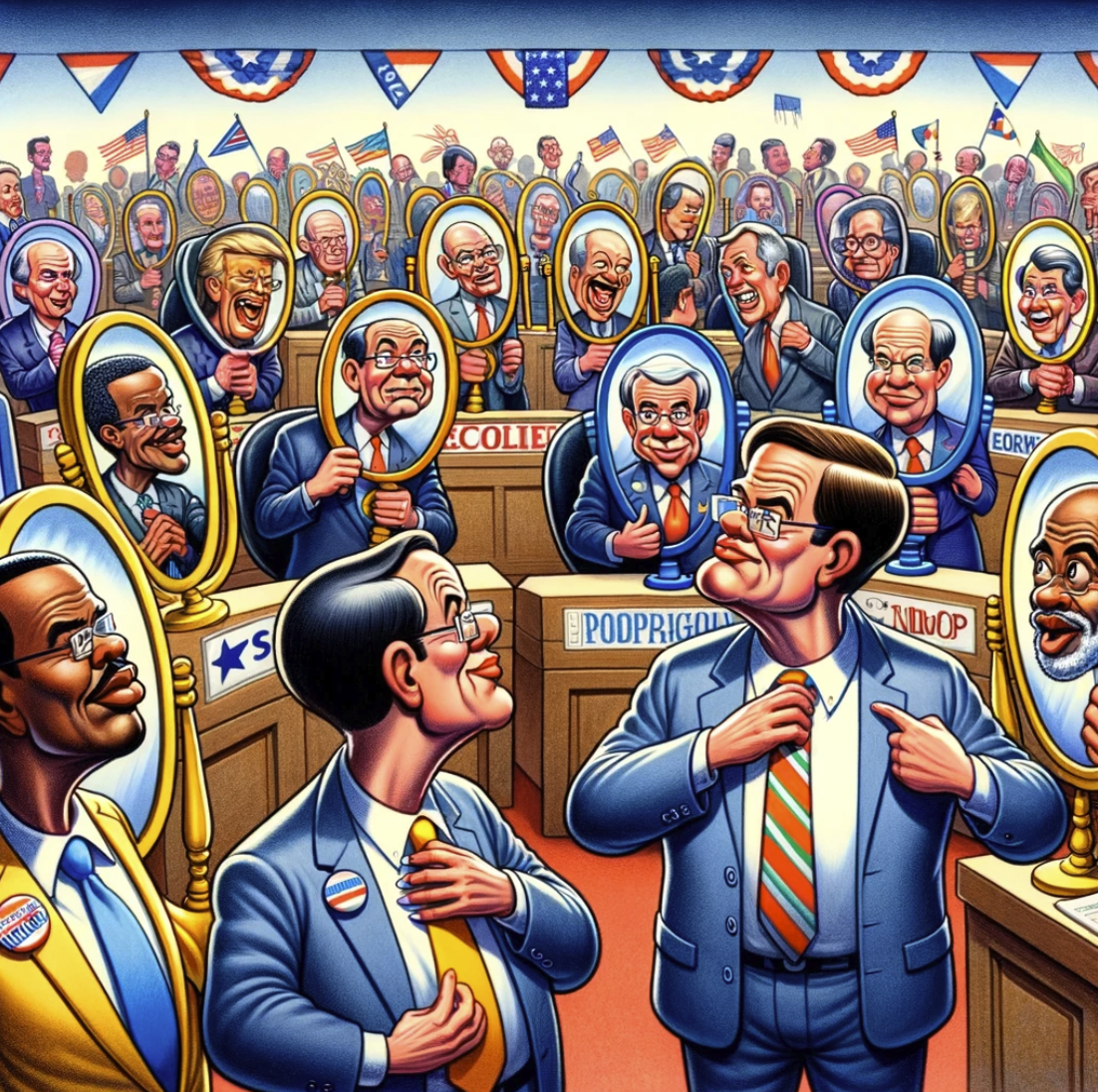Narcissists may be drawn to politics for several reasons:
Power and Influence
Politics offers a platform for power and influence, which can be very appealing to narcissists.
They often seek positions where they can exert control and receive admiration, and politics provides an arena for both.
Visibility and Attention
Narcissists typically crave attention and validation.
Politics, being in the public eye, provides constant visibility and a stage to showcase themselves, feeding their need for attention and admiration.
Opportunities for Manipulation
Narcissists are often skilled manipulators.
Politics, with its complex interpersonal dynamics, offers ample opportunities for manipulation, allowing narcissists to leverage situations and people for their benefit.
Ego Gratification
Success in politics can be a significant ego boost.
Winning elections, influencing policy, and being a public figure can feed the narcissist’s need for self-aggrandizement and validation.
Ideological Dogmatism
Some narcissists may be attracted to politics because it allows them to assert their beliefs and opinions as superior, often without the need for compromise or consideration of others’ viewpoints.
Conflict and Competition
Narcissists often thrive in competitive environments where they can assert their dominance.
The adversarial nature of politics, with its battles, debates, and campaigns, can be invigorating for them.
Are Highly Political People More Likely to Be Narcissists?
The relationship between high political involvement and narcissism is not straightforward and cannot be generalized for everyone.
However, certain aspects of political engagement might appeal to individuals with narcissistic traits:
- Desire for Power and Influence: Politics inherently involves power dynamics, and individuals with narcissistic tendencies may be drawn to environments where they can exert influence and control.
- Need for Attention and Admiration: Engaging actively in political arenas often puts individuals in the spotlight, providing the attention and admiration that people with narcissistic traits might seek.
- Opportunities for Self-Promotion: Politics often involves public speaking, debates, and media exposure, allowing individuals to promote themselves and their ideas, which can be appealing to narcissists.
- Competitive Nature: Politics can be highly competitive, and this competitive environment may be attractive to those with narcissistic tendencies who often thrive in situations where they can assert dominance.
- Platform for Ideological Superiority: Highly political environments can serve as platforms for asserting one’s beliefs and viewpoints, potentially feeding into the narcissistic trait of believing oneself to be superior or more enlightened than others.
However, it’s important to differentiate between healthy political engagement and narcissistic tendencies.
Being highly political does not inherently make someone a narcissist.
Narcissism is a specific psychological condition characterized by an inflated sense of self-importance, a deep need for excessive attention and admiration, troubled relationships, and a lack of empathy for others.
While certain traits of narcissism might align with behaviors observed in highly political environments, many individuals engage in politics out of genuine concern for societal issues, a sense of civic duty, or a desire to effect positive change, rather than out of narcissism.
As with any personality traits, the reasons behind someone’s political involvement can be varied and complex.
Conclusion
Note that not all politicians are narcissists, and being interested in politics does not make someone a narcissist.
Narcissism is a complex personality trait and, in its extreme form, a disorder that should be diagnosed by qualified professionals.


